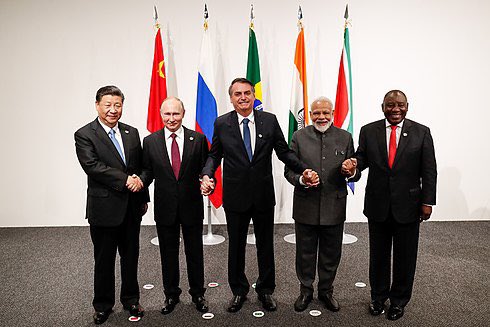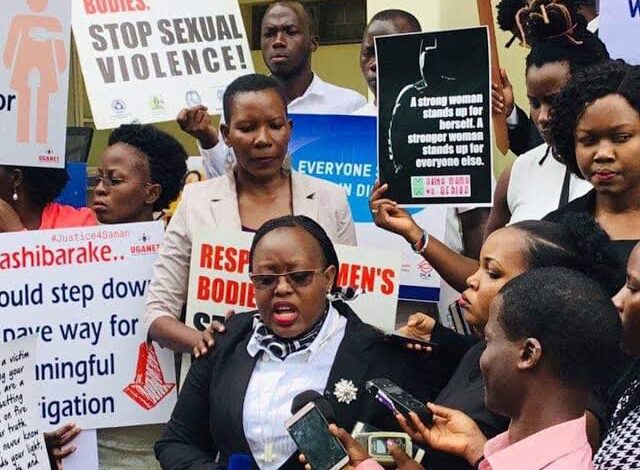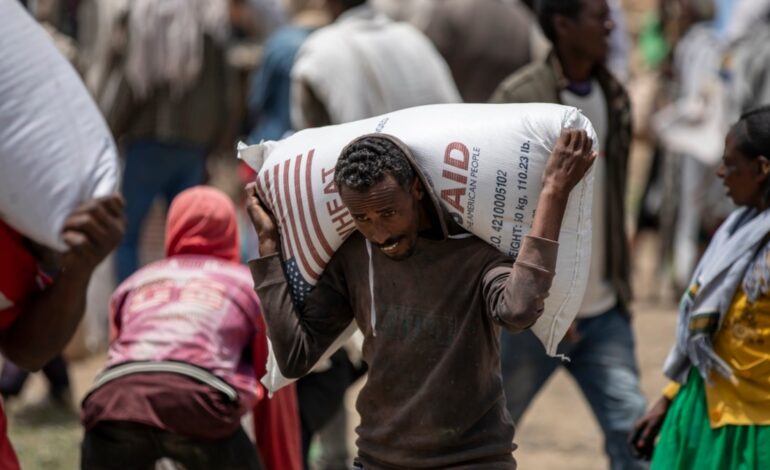
Faith Nyasuguta
The creation of a BRICS currency will be one of the main topics up for discussion when the group of five emerging nations, Brazil, Russia, India, China and South Africa, meet in Johannesburg this month, South African officials said.
Russia has been spearheading the push for the creation of a joint currency, and Brazil has also thrown its support behind the idea. China, too, is in favor of challenging what its ministry of foreign affairs calls U.S. “dollar hegemony.”
Naledi Pandor, South Africa’s Foreign Minister says a move away from the dollar could empower other countries, but also noted the project is challenging: “It’s a matter we must discuss and discuss properly. I don’t think we should always assume the idea will work, because economics is very difficult, and you have to have regard to all countries.”
Isaah Mhlanga, chief economist for Rand Merchant Bank, a South African investment bank, says he thought the idea that a BRICS currency could upend the dollar’s dominance “any time soon” was “just not founded by any economic fundamentals that we know of.”
The U.S. dollar has been the world’s dominant currency since the end of World War II. Eighty percent of international transactions are conducted in U.S. dollars and nearly two-thirds of all currency reserves in central banks are in dollars. U.S. capital markets are also the most liquid in the world.
“South Africa really can’t play much of a role, it’s a very small open economy with very little reserves, which gets influenced by global factors. China might have a possibility but the willingness of the Chinese authorities to let the Chinese currency float freely and lose control is close to none,” he said.
Mhlanga also noted that given the different economic and political systems of the members of BRICS “it’s quite difficult to have a common currency.” He said although there has long been talk of a single currency for Africa, an actual economic framework for it is “still nowhere to be seen, it’s almost impossible.”
Most likely, he said, would be for individual member states to conduct more bilateral trade using their own currencies, as has already happened with Russia and India’s trade in oil.
South African Reserve Bank Governor Lesetja Kganyago also expressed some skepticism, saying that if a single form of legal tender were created by BRICS it would spur debate about the creation of a central bank and where that would be located.
“I don’t know how we would talk of a currency issued by a bloc of countries that are in different geographical locations because currencies are national in nature,” he said. “For the euro area to arrive at that, they had to establish a treaty where the other countries had to all surrender their currencies.”
A GAME-CHANGER OR NOT?
Some economists believe a new currency could be a game-changer. BRICS accounts for some 40 percent of the world’s population, and an estimated one-quarter to one-third of global GDP.
A number of other countries, including Saudi Arabia and Iran, have expressed interest in joining BRICS.
Writing in Foreign Policy magazine recently, former White House economist Joseph W. Sullivan said that while “many practical questions remain unanswered, such a currency really could dislodge the U.S. dollar as the reserve currency of BRICS members.”
Mikatekiso Kubayi, a BRICS specialist at the Pretoria-based research organization the Institute for Global Dialogue, notes that easier and more equitable trade was the main reason BRICS members wanted a common currency.
“A lot of the countries that BRICS trades with… particularly in the global South, they all share one common challenge,” he said. “The expense, the cost of actually doing trade, the cost associated with fluctuating exchange rates, the dominance of some currencies over others and that sort of thing, access to cheap finance, affordable finance for their infrastructure.”
RELATED:








